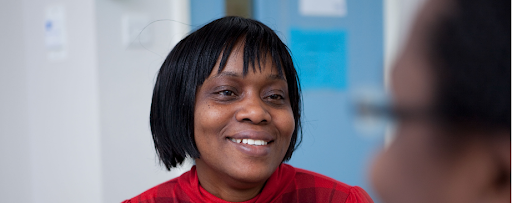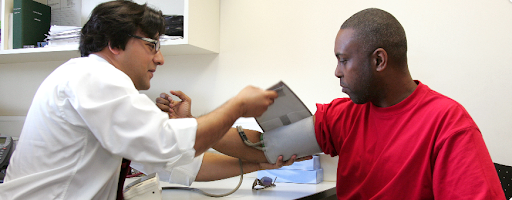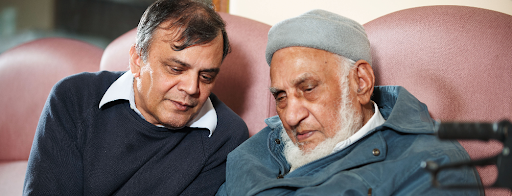12 great things we did in 2022/23
- 09 May 2023
- 5 min read
The 2022/23 operating year proved to be another busy year. Below are just some of the achievements of the network and partners whose research we support.
Preventing RSV: we supported 4 hospitals, 6 GP practices, South Central Ambulance Service and 12 GP participant identification centres to recruit 335 babies, with parental consent, for an international study to prevent respiratory infection in infants. The recruitment was 10% over our target for the HARMONIE study into a monoclonal antibody immunisation nirsevimab to prevent Respiratory Syncytial Virus (RSV), responsible for about 1 in 6 UK hospital admissions for infants and the second leading cause of infant death worldwide. Dr Ian Binnian, the PI for the study in our region, said: “It’s been great to run a regional model and feel part of a regional team. Here’s to other similar studies in the future!”

Year of birth project: we joined a national NIHR project in June to ask participants to provide their year of birth, to help us better understand the ages of people who take part in research. Within three months, the six NHS trusts who deliver research with our support were recording the year of birth, which has been collected for 23% of participants so far. The data is being analysed nationally to see if the ages of people taking part in studies into certain diseases reflects the range of ages for those affected by those diseases
Virtual ward, the PANORAMIC study: in late 2021, the University of Oxford announced the PANORAMIC study into whether antiviral treatments for COVID-19 can be provided in the community to reduce the need for hospital admission and help people get better sooner. Those with ongoing symptoms and a positive COVID test were recruited through GP practices or by signing up via the study website. To support centralised recruitment via the university’s Primary Care Clinical Trials Unit, a total of 33 WTE staff were requested. We were unable to provide this alone so collaborated with LCRNs to provide staff to obtain consent by telephone from volunteers who signed up online. Staff were provided with training and added to a ‘virtual ward’ rota, supporting the successful recruitment of more than 25,000 people
New software for primary care: we launched our Centreline system in July to collect and display data about studies in primary care, such as number of people recruited, recruitment targets, funding and GP practices. This is supporting more in depth analysis and performance management of studies and practices and saving time by removing the previous method of recording data on spreadsheets

Learning from heart attacks and circulatory problems: the Oxford Vascular Study (OxVasc) celebrated its 20th anniversary in 2022. The trial team is collecting data from GPs and hospitals about strokes, transient ischaemic attacks (TIAs, or mini-strokes), heart attacks and other circulatory problems to improve treatment and care. Changes as a result of the findings include seeing TIAs as emergencies rather than through appointments, cutting early recurrent strokes by 80%, or 10,000 strokes, saving the NHS £200m a year
Informed consent training: we have partnered with neighbouring LCRNs to deliver informed consent training online, developed during the pandemic. The monthly, four-hour session is delivered by three facilitators, from a pool of 30, to up to 40 delegates. The facilitators have provided a diverse, expert delivery of the session, backed by a standard operating procedure. More than 930 staff have completed the course, which has attracted positive feedback from attendees
Kidney drug slows disease and saves lives: the University of Oxford’s EMPA-KIDNEY study reported that empagliflozin reduces the risk of kidney disease progression or cardiovascular death by 28% in people with chronic kidney disease (CKD). The study recruited more than 6,600 people in eight countries, including 99 in our region for the study into CKD, which affects about 1 in 10 people worldwide and can lead to the need for kidney dialysis or a transplant. Updated clinical guidelines are being drawn up reflecting the findings
Ask the Expert webinars: we developed a series of Q&A webinars with clinicians we support to answer the public’s questions about research into their speciality. More than 3,000 people attended or watched recordings on YouTube for the events, about dementia, diabetes, Parkinson’s disease, sickle cell anaemia and stroke. A programme of similar webinars is now being rolled out across all LCRNs

South Asian health study: more than 2,400 people were recruited in 2022/23 to a study inviting people of South Asian heritage to Wycombe Hospital, High Wycombe, Buckinghamshire. The LOLIPOP 100k study seeks to understand why people of South Asian heritage have twice the risk of cardiovascular disease and three-times the risk of diabetes compared to Europeans. Volunteers aged 25 to 85 undergo a 90-minute health assessment to provide data for the study and receive a personalised health report. More than 60 GP practices helped provide participants and the hospital team hope to recruit 10,000 people by December 2024
Fellows host podcast about the future of research: the LCRN’s outgoing Research Fellows unveiled a series of podcasts examining the future of research. The Future of Research podcasts featured discussion between last year’s fellows on topics including enabling research in clinical settings and ensuring diversity among study participants. Fellows receive up to £40,000 from the LCRN and partner organisations to give them time to develop into a research leader to be an ambassador for the CRN. It can be spent on self-development activities such as exploring the research landscape to ultimately support and develop recruitment into NIHR portfolio studies
Combating motor neurone disease: staff at the John Radcliffe recruited 2 participants to the first study in people for a drug to treat those with amyotrophic lateral sclerosis, a type of motor neurone disease (MND), or with frontotemporal dementia, which can lead to MND, a condition that affects the brain and nerves. The study is into whether drug WVE-004 - aimed at reducing the generation and build-up of toxic molecules and proteins - is safe and well tolerated compared with a placebo. The John Radcliffe team had a target of 1 participant for the study, which recruited 7 people at three sites in England. Researchers worked closely with the neuroscience ward and at evenings and weekends to achieve their target. Those who received the placebo were offered the drug when their study participation ended
Developing a career pathway for research: Royal Berkshire Hospital NHS Foundation Trust developed a career pathway detailing the skills required for NHS band 3 to 7 posts, to improve recruitment to nursing roles. This includes supporting clinical research practitioners gain accreditation through The Academy For Healthcare Science and making all band 3 posts progress towards band 4


